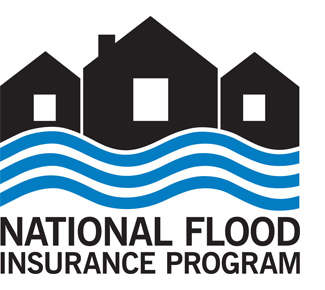Florida Senate Considers Withdrawal From Federal Flood Insurance Plan
October 9, 2013
State legislators continue to consider how they can protect homeowners covered by the National Flood Insurance Program from a planned hike in rates, with a focus now on possibly altering regulations so private insurers can have more flexibility in offering the coverage.
 And absent a private solution, the state may need to consider establishing a state agency as a last resort for the roughly 270,000 Florida homeowners who could face unaffordable insurance under the national program, said Senate Banking and Insurance Chairman David Simmons, R-Altamonte Springs.
And absent a private solution, the state may need to consider establishing a state agency as a last resort for the roughly 270,000 Florida homeowners who could face unaffordable insurance under the national program, said Senate Banking and Insurance Chairman David Simmons, R-Altamonte Springs.
“I don’t think it’s their fault, they bought a home under a national flood insurance program that has now changed the rules on them, in the middle of the game,” Simmons said.
Lawmakers continued to express concern Tuesday about the anticipated end of federal flood-insurance subsidies that Realtors claim could devastate Florida’s economy. State lawmakers have called on Congress to postpone implementation of the Biggert-Waters Flood Insurance Reform Act, which phases out subsidies on older properties in flood zones.
The 2012 act calls on the Federal Emergency Management Agency and other agencies to make a number of changes to the way the National Flood Insurance Program is run, including raising rates to reflect true flood risk and to make the program more financially stable.
With Florida accounting for about one-third of the policies in the federal program, Simmons said hopefully the threat of Florida’s withdrawal from the program will spur the federal government to take action.
“We can provide leverage to get a solution to this, and if we don’t provide the leverage we’ll have a solution of our own,” Simmons said. “But I don’t think our remedy is to leave these homeowners without some help.”
Comments
6 Responses to “Florida Senate Considers Withdrawal From Federal Flood Insurance Plan”



Build flood insurance into homeowners and commercial property policies and surcharge flood coverage based on exposure. Do the same for other catastrophic exposures like earthquake. Use a government backstop similar to terrorism coverage to prevent insurer insolvency while allowing property owners to choose their insurers. Couple this with TOUGH building codes and zoning ordinances in flood-prone areas.
The problem is that local authorities have allowed property owners to build in areas that should NEVER have homes built on them. (i.e. BARRIER ISLANDS). Why do you think they call them BARRIER ISLANDS??? Power to the all-mighty tax dollar!
1)Delay Biggert-Waters? it’s already in effect with many of its components already affecting insurance buyers. We can’t delay anything that is already happening. Besides, delay only puts off the inevitable.
2)Withdrawal from the program? Remember NFIP is actually a voluntary program. I think FEMA would be thrilled to lose anyone of us along the Gulf Coast (I’m from Louisiana) so they wouldn’t have claims to fill.
3) Private insurance? Has anyone heard the name Lloyds of London and anything about how high their premiums are? I’ve seen some of that.
Response to SW: Sure let the private industry determine rates, and, like homeowners policies, they will all withdraw if they don’t make enough of a profit…Then we have to create an insurer of last resort, who just picks rates out of the air, and when they don’t make enough profit, create another “re-inspection” program where they come out, inspect, and protections that were fine months ago are now antiquated, all to get more money out of the consumer….Yeah that is what we need….
Why not get all the governments out of the flood insurance business? Either one can afford insurance or one can’t. If the insurance companies want the business, they will compete for it and makes rates/programs affordable.
Personal responsibility should come into play, here, too.
Remember, if the government gives, it can take away.
We don’t NEED another agency.